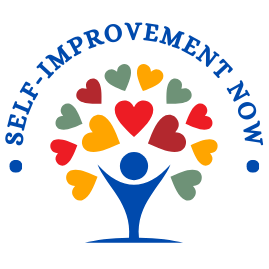Avoid Burnout with These 7 Tips
Feeling Overwhelmed? Let’s Fix That!
Burnout is a real and quite damaging condition. Once it creeps into your life, flipping things around can be tough. That’s why it’s necessary to take steps to try and avoid burnout before it even starts. Here are seven friendly and practical tips to help you navigate through the hustle and bustle without losing your mind.
1. Set Boundaries, Seriously
No matter what job you have, setting boundaries is crucial. You can’t be available all the time—it’s just not possible. To keep burnout at bay, you need to establish clear boundaries on when you won’t be available. Your evenings and weekends should be sacred. Set up your auto-reply emails to let people know you’ll get back to them during your working hours. If you’re the boss, make sure everyone knows your “do not disturb” times. Stick to them!
Practical Steps:
- Communicate Clearly: Inform your colleagues and clients about your boundaries. Use tools like email auto-responders to set clear expectations.
- Use Tools: Utilize scheduling apps and calendar blocks to manage your time effectively.
- Be Firm: Learn to say “no” when your schedule is full. Remember, saying no to additional work means saying yes to your well-being.
2. Balance is Everything: Work-Life Harmony
Life’s too short to be all work and no play. Beyond setting boundaries, carve out some time for yourself. This could be a hobby, hanging out with family, or simply taking a walk in the park. It’s all about doing something you love. Simple pleasures can make a big difference—think of it like recharging your emotional batteries.
Practical Steps:
- Schedule “Me” Time: Make a point to schedule activities that bring you joy. Whether it’s a weekly dance class or a daily reading session, prioritize it.
- Digital Detox: Allocate specific times to unplug from electronic devices. Reducing screen time can help reduce stress and improve your work-life balance.
- Mindful Engagements: Engage in activities that promote relaxation and mindfulness, such as gardening, cooking, or knitting. These activities can be therapeutic and help you unwind.
3. Put Yourself First
When you start feeling overwhelmed, it’s time to put yourself first. Yes, even if there’s a massive new project at work. If you need a mental health day, take it. Remember, if you’re burned out, you won’t be of much help to anyone.
Taking care of yourself also means listening to your body. If you’re not feeling well, give yourself permission to rest. Pushing through sickness can lead to even more stress and burnout.
Practical Steps:
- Listen to Your Body: Pay attention to signs of stress or fatigue. Take breaks when necessary and avoid pushing yourself to the brink.
- Seek Time Off: Don’t hesitate to take leave days when you feel the need. Mental health days are just as important as sick days.
- Self-Care Routine: Establish a self-care routine that includes activities like journaling, pampering sessions, or leisurely walks.
4. Mindfulness and Stress-Busting Tricks

Mindfulness and meditation are your secret weapons for battling stress. Being present in the moment can help you disconnect from work pressures and regain some calm.
Add stress-reducing activities like yoga, deep breathing, or journaling into your routine. It doesn’t have to be long—even just a few minutes a day can make a huge difference in how you feel.
Practical Steps:
- Mindful Moments: Practice mindfulness by focusing on the present moment. Use apps like Headspace or Calm to guide your meditation.
- Deep Breathing: Incorporate deep breathing exercises into your day. Even a few minutes of deep, slow breaths can reduce stress levels significantly.
- Gratitude Journaling: At the end of each day, jot down three things you’re grateful for. This simple practice can shift your focus from stress to positivity.
5. Don’t Be Afraid to Get Help
Sometimes burnout can get out of hand, and that’s okay. If you’re constantly feeling overwhelmed, consider seeking professional help. Therapists, counselors, or life coaches can offer valuable strategies and support.
Having regular chats with a mental health professional can be a game-changer. They can provide insights and coping mechanisms tailored just for you.
Practical Steps:
- Find a Professional: Look for a mental health professional who resonates with you. Personal recommendations or online platforms can help you find the right fit.
- Regular Check-Ins: Schedule regular sessions even if you don’t feel overwhelmed. Preventive mental health care can keep stress levels in check.
- Join Support Groups: Consider joining support groups where you can share experiences and gain insights from others facing similar challenges.
6. Build a Positive Work Tribe
The folks you work with can make or break your workday. Building positive relationships with your colleagues can create a more supportive and enjoyable environment. Take time to connect, understand their perspectives, and be there for each other.
Team activities and open communication can go a long way. A friendly work environment can significantly reduce stress.
Practical Steps:
- Team Building: Participate in team-building activities that foster camaraderie and mutual respect.
- Open Communication: Encourage open channels of communication. Regular team meetings or one-on-one check-ins can help address concerns early on.
- Support System: Develop a support system within your workplace. Having colleagues you can lean on during tough times can be incredibly comforting.
7. Your Body is Your Best Friend
Your physical health is directly tied to your mental well-being. Make sure you get regular exercise, eat balanced meals, and get enough sleep. Exercise can release endorphins—your body’s natural feel-good chemicals.
Steer clear of unhealthy habits like chugging coffee all day or skipping meals. Treat your body right, and it’ll help you handle stress better.
Practical Steps:
- Regular Exercise: Find an exercise routine that you enjoy, whether it’s jogging, dancing, or pilates. Physical activity helps combat stress and boosts overall health.
- Balanced Diet: Aim for a balanced diet rich in fruits, vegetables, and whole grains. Avoid excessive caffeine and sugary snacks, which can lead to energy crashes.
- Good Sleep Hygiene: Practice good sleep hygiene by maintaining a regular sleep schedule, creating a restful environment, and avoiding screens before bedtime.
It’s easy to feel overwhelmed these days, but you can avoid burnout by setting boundaries, maintaining a work-life balance, and putting yourself first. Plus, practicing mindfulness, seeking professional help when needed, fostering positive work relationships, and staying physically healthy can make a huge difference. By following these tips, not only will you dodge the burnout bullet, but you’ll also walk through life feeling more relaxed and content.
Life can be a whirlwind, but remember to breathe, take a step back, and prioritize your well-being. You’ve got this!




